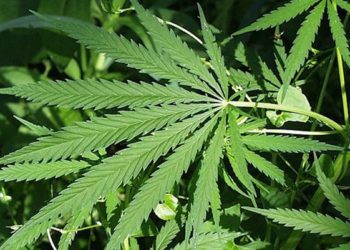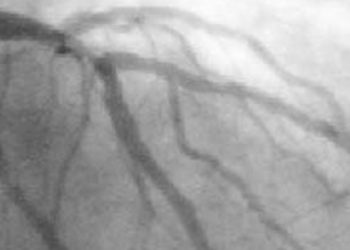Psychological stress prior to infection may increase risk of long COVID
Evidence Rating Level: 2 (Good)
1. Greater psychological stress, as measured by the Patient Health Questionnaire (PHQ-4), prior to infection of COVID-19 may be a risk factor for long COVID / post-COVID-19 conditions.
Long COVID is defined as signs and symptoms consistent with COVID-19 that last beyond 4 weeks from onset of infection. These can include fatigue, brain fog, dyspnea, digestive issues, loss of taste and smell, and depression. Currently, the pathophysiology of long COVID is poorly understood, and there is a scarcity of literature to allow for the identification of at-risk individuals. As there is prior literature associating psychological distress with greater severity of acute respiratory tract infections, it has been hypothesized that psychological distress may be associated with adverse post-COVID outcomes. This prospective cohort study sought to address this gap in literature and aimed to examine if preinfection psychological distress was associated with an increased risk of developing long COVID. These distresses include depression, anxiety, loneliness, perceived stress and worry. Three large longitudinal studies were used to recruit participants: Nurses’ Health Study II (NHSII), Nurses’ Health Study 3 (NHS3), and the Growing Up Today Study (GUTS). Participants completed an online COVID-19 questionnaire, and received monthly surveys afterward, with participants actively working in health care settings completing weekly questionnaires. 54 960 of the 105 662 original participants were included in the analysis as they did not report a positive COVID-19 test at baseline. During the 19 months of follow-up, 3193 participants tested positive and completed a post-COVID-19 questionnaire. Distress was measured at baseline using a 4-item Patient Health Questionnaire (PHQ-4), which consists of a 2-item depression measure (PHQ-2) and a 2-item anxiety measure (2-item Generalized Anxiety Disorder scale [GAD-2]). Responses ranged from 0 (not at all) to 3 (nearly every day). Scores of 3 or higher on the PHQ-2 or GAD-2 indicated probable depression or probable anxiety. Worry about COVID-19 was assessed with the item, “How worried are you about COVID-19?” Response options were not at all, not very worried, somewhat worried, and very worried. Participants who were not active health care workers had two additional types of distress assessed using a 4-item Perceived Stress Scale. 3-item UCLA Loneliness Scale was used to determine the feeling of lack of companionship, being left out, and isolated from others, ranging from 1-3. Long term COVID-symptoms were asked, and if yes, participants were asked to give further details on these symptoms. All types of distress were significantly associated with increased risk of post–COVID-19 conditions in a dose-dependent manner after adjustment for demographic factors (probable depression, RR, 1.39 [95% CI, 1.19-1.63]; probable anxiety, RR, 1.47 [95% CI, 1.27-1.70]; very worried about COVID-19, RR, 1.43 [95% CI, 1.22-1.68]; highest quartile of perceived stress, RR, 1.50 [95% CI, 1.21-1.86]; lonely some of the time or often, RR, 1.35 [95% CI, 1.11-1.65]; all P < .01 for trend). More types of distress were associated with higher risk of developing post-COVID-19 conditions (≥2 types vs none, RR, 1.54; 95% CI, 1.28-1.86). Additionally, all symptoms with the exception of persistent cough or smell/taste problems were more prevalent in participants with distress. The study had several limitations. Due to the recruitment process, participants were mostly white, female and health care workers, and data collection also relied purely on self-reporting. Though the study findings still provide valuable insight into risk factors contributing to long COVID, this may limit the external validity of findings. Overall, this study suggests pre-existing psychological distress is associated with a greater risk of developing post-COVID-19 conditions.
Click to read the study in JAMA Psychiatry
Image: PD
©2022 2 Minute Medicine, Inc. All rights reserved. No works may be reproduced without expressed written consent from 2 Minute Medicine, Inc. Inquire about licensing here. No article should be construed as medical advice and is not intended as such by the authors or by 2 Minute Medicine, Inc







![The ABCD2 score: Risk of stroke after Transient Ischemic Attack (TIA) [Classics Series]](https://www.2minutemedicine.com/wp-content/uploads/2013/05/web-cover-classics-with-logo-medicine-BW-small-jpg-75x75.jpg)